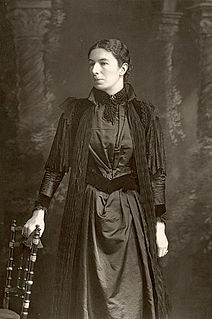A Quote by Mary Augusta Ward
How little those who are schoolgirls of today can realize what it was to be a schoolgirl in the fifties or the early sixties of the last century!
Related Quotes
We wanted to more richly experience why we were alive, not just make a better life, and so people went in search of things. The great thing that came from those that time was to realize that there was definitely more to life than the materialism of the late sixties and early sixties. We were going in search of something deeper.
Sometimes at lectures I am asked: how would the champions of the last century play today? I think that, after making a hurried study of modern openings, and watching one or two tournaments, the champions of the last century, and indeed the century before that, would very quickly occupy the same place that they occupied when they were alive.
I think making movie is kind of like getting fat people to walk 20 miles. If you just do it 100 yards at a time, and nobody knows how far they are going, they can do it!I would include myself in those fat people! You do this little by little and you don't realize your potential, or you don't realize how really rich, and how far you can go.
In the past 20 years alone, it adds up to more death than were caused by all the civil and international wars adn government repression of the entire twentieth century, the century of Hitler and Stalin. How much would we give to prevent those horrors? Yet how little are we doing to prevent today's even larger toll and all the misery that it involves? I believe that if you read this book to the end, and look honestly and carefully at our situation, assessing both the facts and the ethical arguments, you will agree that we must act.







































